News
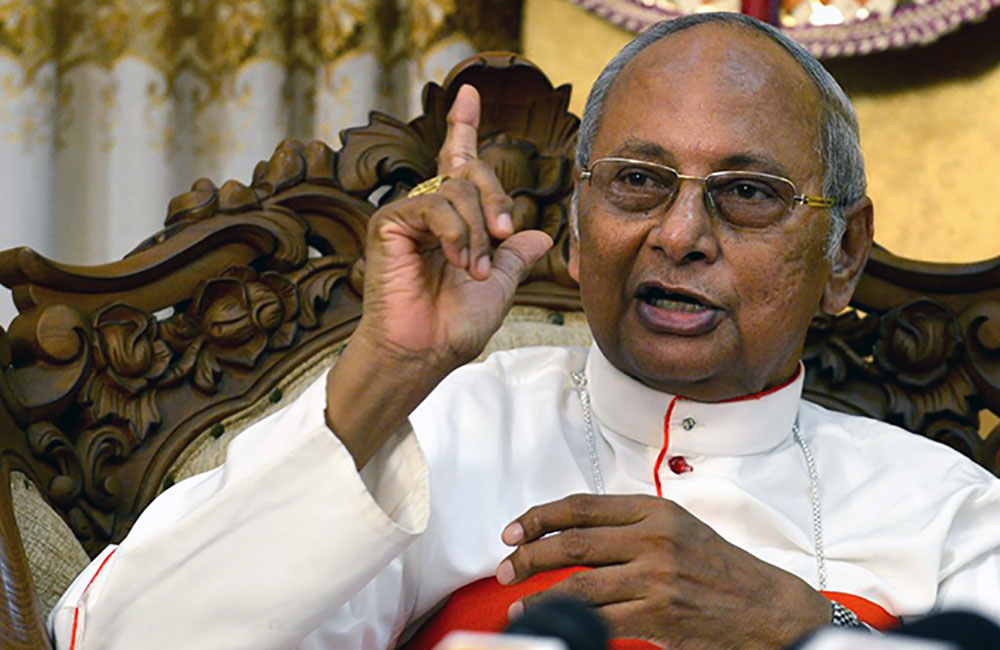
Cardinal condemns poll candidates who use his name
The Cardinal said it had been brought to his notice that certain candidates contesting the forthcoming general election have utilized photographs taken with him for propaganda purposes.
"In any case, neither I nor the Archdiocese of Colombo have aligned ourselves with any political party or connected groups or persons seeking electoral gains. Such acts have been done without my consent," said the 72-year-old archbishop of Colombo in a media statement on July 18.
"It is an inalienable right of every citizen to exercise his or her right to vote in keeping with the dictates of their own conscience," he added.
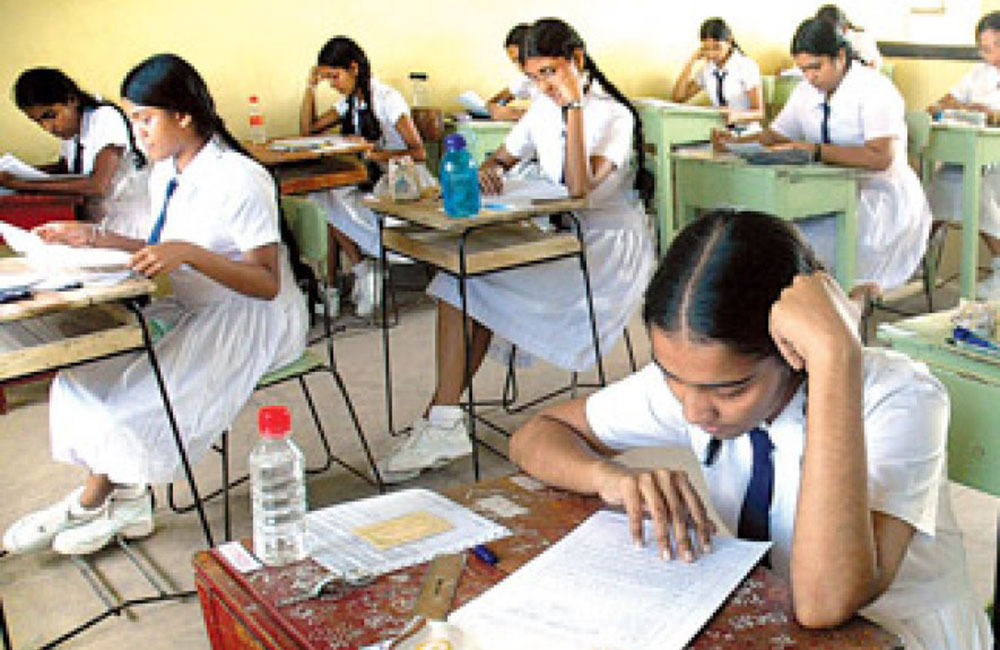
Examinations Department extends application deadline for restrutiny of O/L results
Earlier, the Department of Examination said applications to re-scrutinise the GCE Ordinary Level Examination 2019 results should be sent to the Department of Examinations on or before 17 July.
Students are urged to send in their applications for re-scrutiny via registered post to reach the Commissioner General of Examinations, National Evaluation & Testing Service, Department of Examinations - Sri Lanka, P. O. Box 1503, Colombo on or before the deadline.
Further information can be obtained from the official website of the Examinations Department at www.doenets.lk
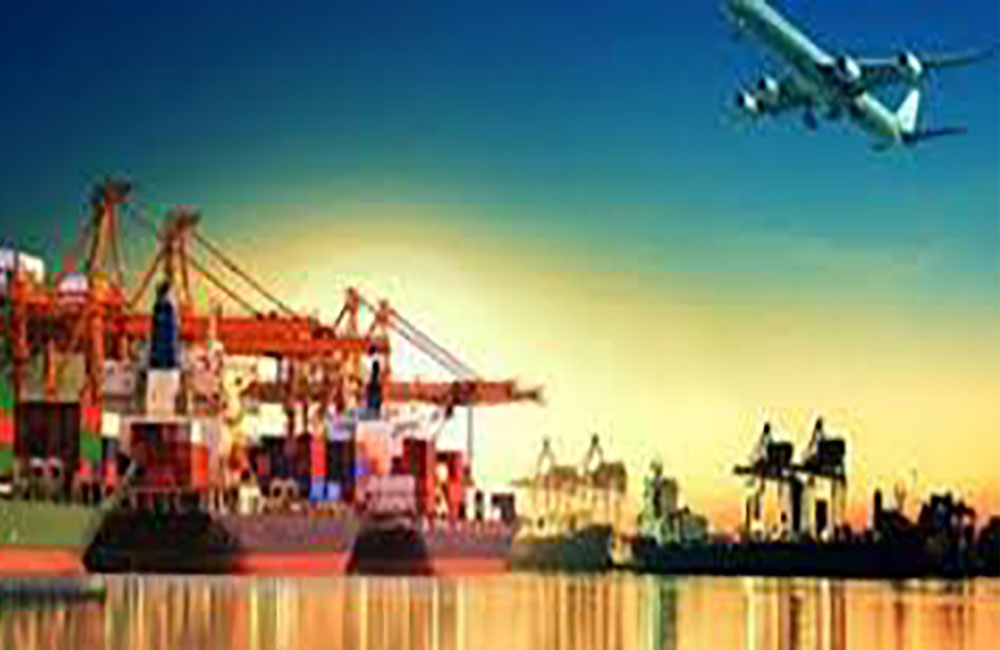
Sri Lanka's exports rebound after relaxation of lockdown measures
“The bounce is certainly back in exports which has now become the breadwinner for Sri Lanka's favourable trade balance. Exports have become a national priority, now more than ever, it is certainly impressive to see a strong V shaped recovery in the export sector, comparatively to the lowest point in April 2020, exports are up 327%. I thank the entire export community for serving the national economic needs at our most vulnerable time and we at the EDB stand ready to serve our export community,” EDB Chairman Prabhash Subasinghe said.
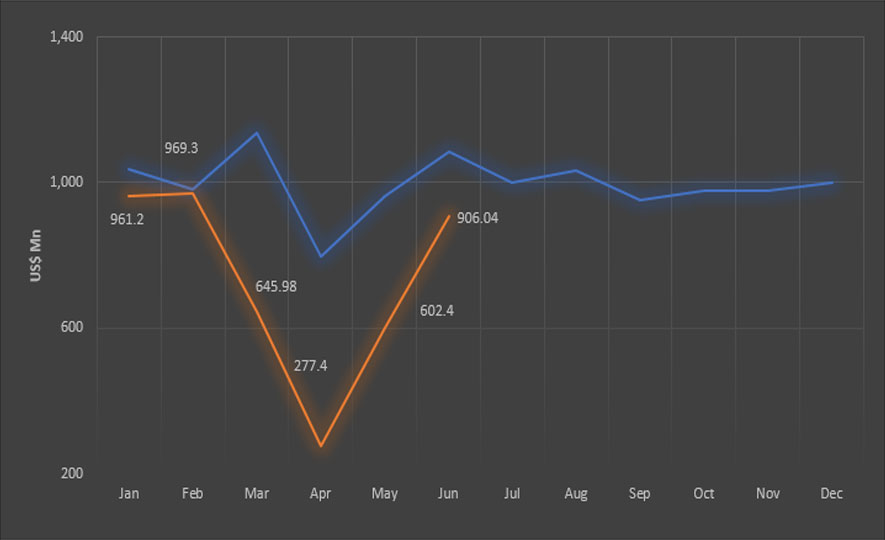
Export earnings from tea increased as both values (6.14%) and volumes (4.52%) increased in June 2020 compared with May 2020. In addition, export earnings from tea recorded 1.55% increase in June 2020 in comparison to June 2019
Earnings from all the major categories of Coconut based products increased in June 2020 compared with June 2019 due to the improved performance in export of Coconut Oil, Cocopeat & Activated Carbon.
In addition, Export earnings from Rubber & Rubber finished products increased by 34.58% to US$ 68.89 Mn during the month of June 2020 compared with May 2020. With the poor performance recorded in the tyre sector, Export of Rubber & Rubber finished products decreased by 14.74% during the month of June 2020 compared with the same month in the previous year.
Spices and Seafood exports increase YoY
Export earnings from Spices and Essential Oils increased significantly in June 2020 compared with May 2020 as the growth in cinnamon (81.7%), pepper (84.78%), nutmeg and mace (106.67%) and essential oils (22.75%). In parallel export earnings from Spices and Essential Oils increased by 29.96% in June 2020 in comparison to June 2019.
Earnings from seafood increased by 13.7% to US$ 24.32 Mn in June 2020 in comparison to US$ 21.39 Mn recorded in June 2019 and also increased by 110.93% in June 2020 compared with May 2019 due to the better performance of export of frozen fish.
When considering the disaggregated level, Exports of Rubber Gloves (Industrial & Surgical), Liquid Coconut Milk, Cocopeat, Made-Up Textile Articles, Areca Nuts, Coconut Cream, Cinnamon, Pepper, Essential Oils, Frozen fish, Lentils and Plastic Gloves recorded positive growth rates, while other sectors such as Rubber Products (-14.74%), Food & Beverages (-8.36%), Electronics & Electronic Components (-6.28%) and Petroleum Products (-7.98%) recorded negative growth rates during the month of June 2020 compared with the month of June 2019.
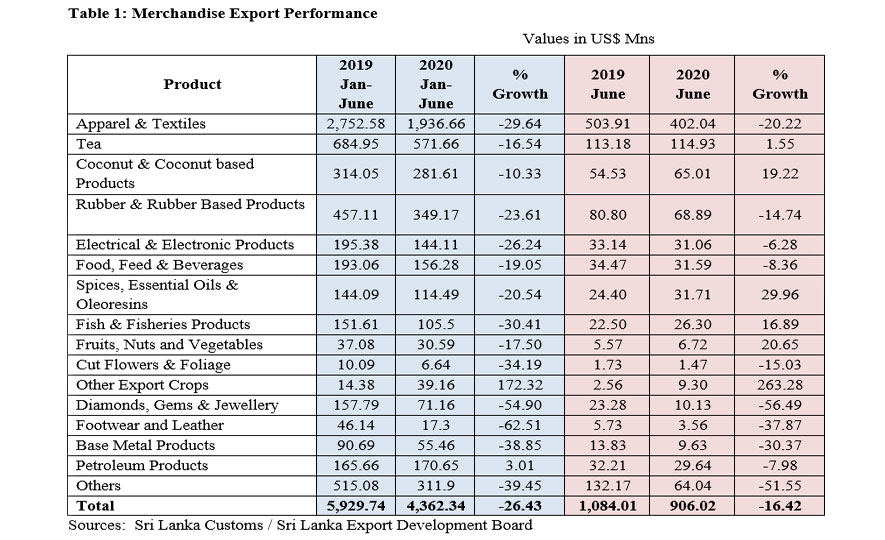
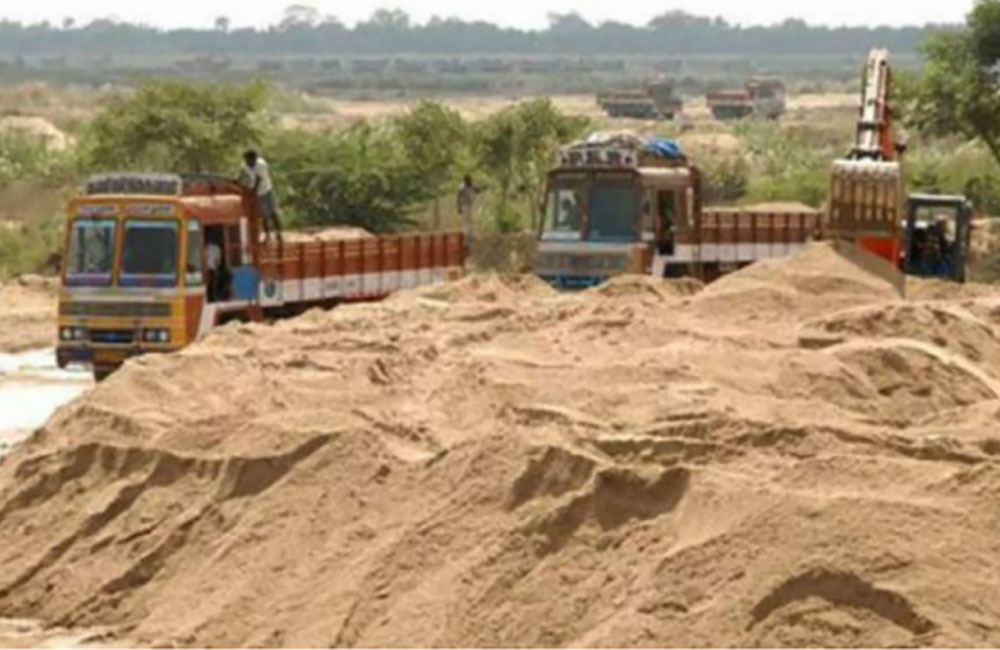
Court of Appeal blocks government's sand mining concessions
High quality river sand is widely sought by the construction industry.
A two-judge bench ruled that the government had no powers to remove tight controls established under a 1992 law to protect the environment and eco systems along rivers across the island.
Court of Appeal president A. H. M. D. Nawaz ordered police to enforce controls over the transportation of sand and other construction aggregates despite the government waiving the strict licensing for sand mining and transport.
“The court instructed the police chief to implement the law as the government had not changed the law despite verbal instructions not to prosecute offenders,” a court official said.
The activist Centre for Environmental Justice (CEJ) petitioned the court to stop the free transport of construction material arguing that it had led to widespread mining and caused serious damage to rivers and other water bodies.
“This is a victory for the environment,” CEJ spokesman Ravindranath Dabare told AFP. “We hope the police will carry out the court order and implement the existing laws to protect our environment.”
The law provided for fines up to two million rupees ($10,000) and six months in prison for those transporting sand without permits which are usually issued under strict environmental considerations.
Rajapaksa, who won a landslide at November elections, lifted the permit requirement, bowing to the demands of the construction industry.
The latest court action came three weeks ahead of the August 5 parliamentary elections at which Rajapaksa’s party is hoping to consolidate their hold on power with a two-thirds majority. (AFP)

Teachers' Unions cry foul over exam dates
Joseph Stalin, General Secretary of the Ceylon Teachers’ Union had stated to 'Neth News' that the Education Ministry have taken such decisions without having consulted the teachers' or principals' unions.
Furthermore, Mahinda Jayasinghe, the General Secretary of the Ceylon Teachers' Service Union said that the delay in taking a final decision on the new examination dates caused a grave injustice to school children.
The new dates of the GCE Advanced Level and Grade 5 Scholarship examination are scheduled to be announced tomorrow (20), Ministry of Education sources said.
“It is disappointing if politicians are acting in a manner which disregards all concerns,” said the General Secretary of the Ceylon Teachers’ Union.
Meanwhile, the Ministry of Education has decided to extend the current school closure by another week to ensure the well-being of students amidst a spike in COVID-19 cases. Accordingly, schools will be reopened only for students in grades 11, 12 and 13 on July 27th.
However, no schools in Rajanganaya and Welikanda Education Divisions will be reopened before August 10, the Ministry of Education said.
The Director General of Health Services has recommended other school grades to resume activities on August 10 after the conclusion of the general election.
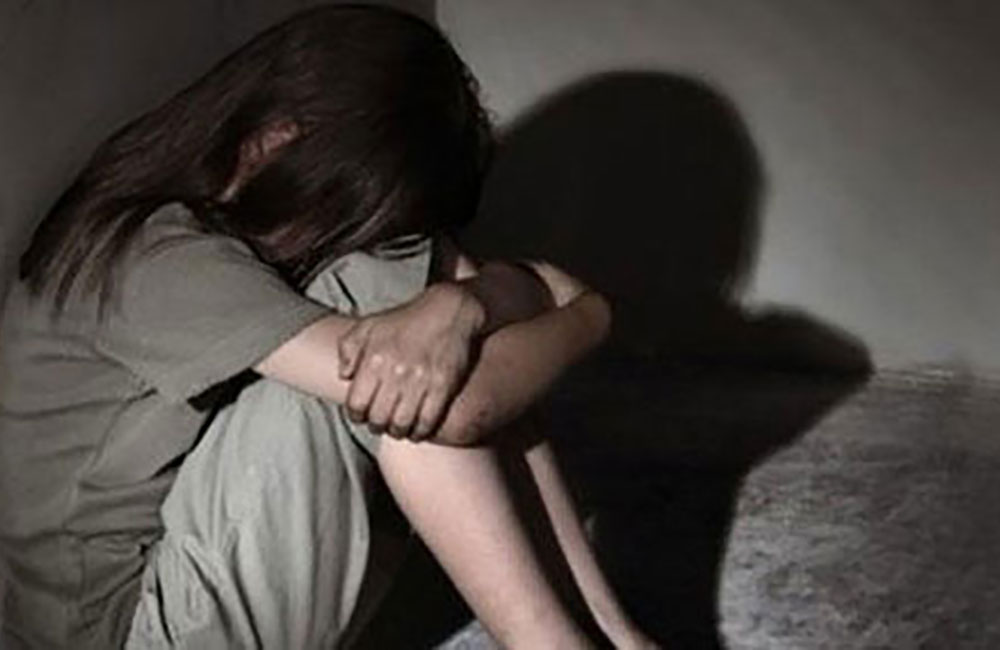
Sri Lanka records over 5000 cases of child abuse in 2019
The shocking information based on complaints to police in 2019 was made public by Director of Crime and Organized Crime Division Deputy Inspector General (DIG) Priyantha Jayakody.
5292 child abuses and 1642 rapes were recorded last year. DIG Jayakody warns that the actual number could be higher as many abuses go unreported to police.
He said that the women and child bureau has established a unit in each of the 44 police divisions and that any complaint can be lodged locally or dialing the 1929 hotline.
The national child protection authority has received 8500 complaints last year according to its chairman Muditha Vidanapathirana.
He added that the authority has received 3500 complaints by mid-June this year.

Public Health Inspectors step away from disease control measures
The Ministry issued a gazette on Friday outlining several health guidelines that must be adhered with regard to the parliamentary election. However, the PHI Union said the gazette has not vested them with any powers to monitor the implementation of these guidelines.
The PHI Union stepped away from all COVID-19 control duties with effect from Friday (July 17), as a mark of protest over a statement made by Health Minister Pavithra Wanniarachchi.
The Sri Lanka Public Health Inspectors Union points out that its officers have no legal protection when performing their duties if they are not vested with the authority to implement the health guidelines
“We cannot implement the law without being vested with powers,” Chairman of the PHI Union Upul Rohana said.
He further noted that with the strike action, containment measures of communicable diseases have also been hampered.
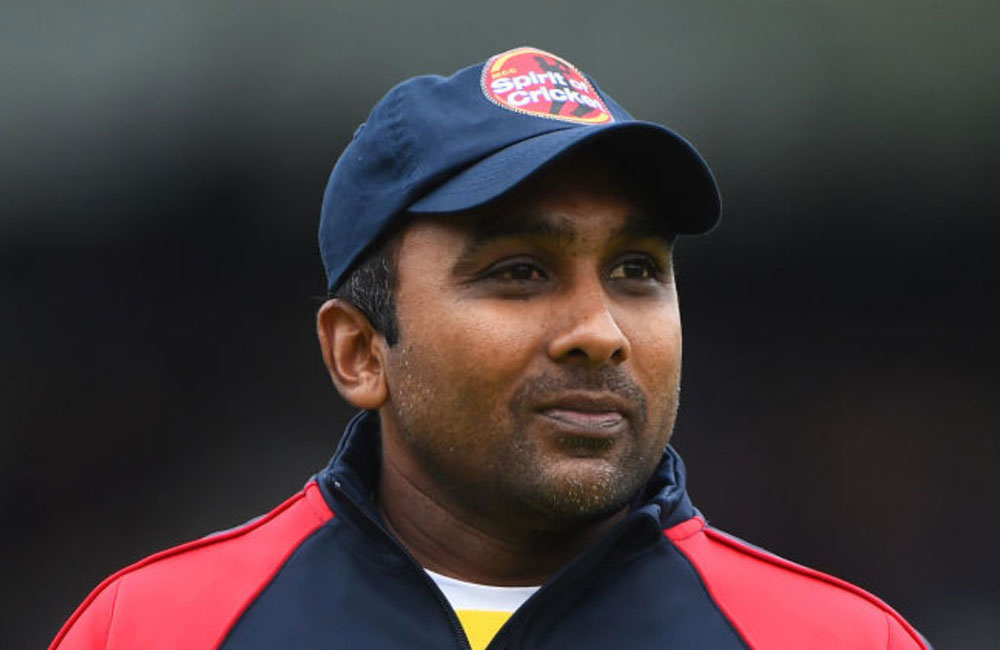
Mahela appointed as Chairman of SSC cricket committee
Mahela Jayawardena played for the SSC in 1997 as a schoolboy cricketer and was selected to represent the national team the same year. In 2006, Jayawardene was named as the best international captain in 2006 and was nominated in 2007 as the best Test cricket player of the year by ICC. Jayawardene was a key member of the team that won the 2014 ICC T2- World Cup and was part of the team that made it to the final of 2007/2011 Cricket World Cup, 2009/2012 ICC World T-20.
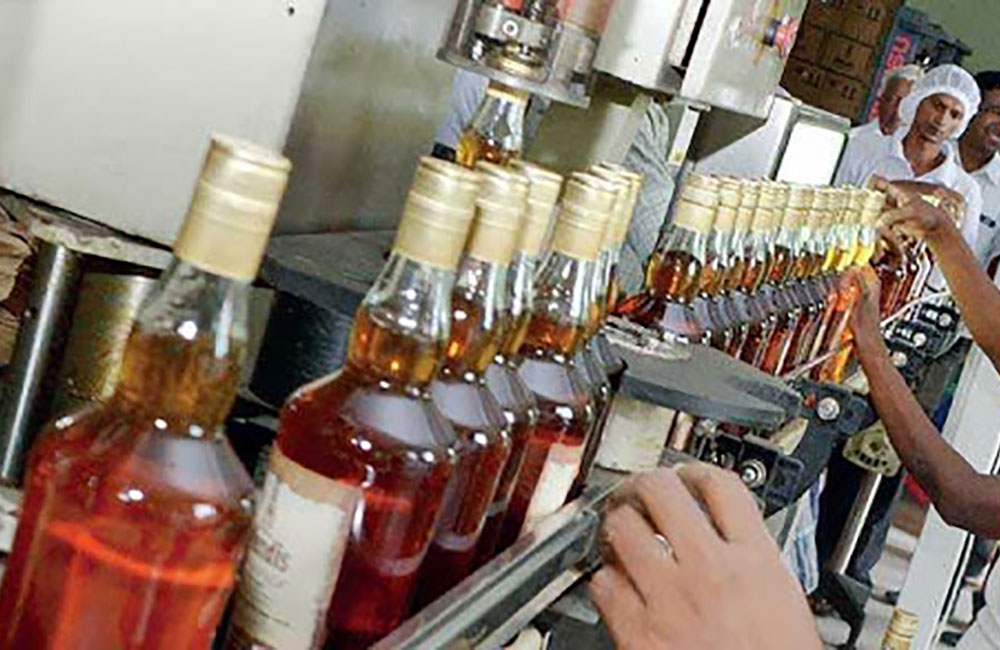
Ethanol container saga ends leaving liquor produces bemused by import ban
The delay in the clearance of ethanol tankers imported by local manufacturers placing orders and opening LC’s before the government’s ban on rectified spirit on January 01 will hit mainly the local liquor manufactures as well as the personal care industry, paints, coatings, printing inks, fragrance and flavour industries.
The government will also be deprived of much needed tax revenue due to the enforcement of this ban as the liquor industry would cut their production, which would result in a significant loss of revenue to the state coffers.
According to the Ministry of Finance, the excise revenue target was Rs. 130 billion, out of which Rs. 68 billion was expected from the taxation of ethanol imports.
During the financial year 2018/2019, Distilleries Company of Sri Lanka (DCSL) paid Rs. 58 billion in taxes, and Rs. 64 billion in taxes a year ago.
At least 22 licensed importers have been affected by the ban on ethanol imports and a very few of their containers (1 or 2) including 41 tankers imported by Distilleries Company of Sri Lanka (DCSL) had been cleared by Customs following strict procedure of the department, several importers said.
They pointed out that the directive of the President to allow clearance of the quantity of ethanol shipments arranged before the ban will fulfill the local requirement temporarily but a shortage of ethanol based products and the loss of tax revenue will be resulted in the long run.
The local liquor manufacturers are to be hit badly as the local production of ethanol is inadequate to meet the requirement, Excise Department data revealed.
According to these official data, production capacity of five local ethanol producers is only 42 percent of the local requirement and the estimated maximum production of Pelwatte,Sevanagala, Royal cask, Hingurana and Galoya plantations is in the region of 12 million liters per annum.
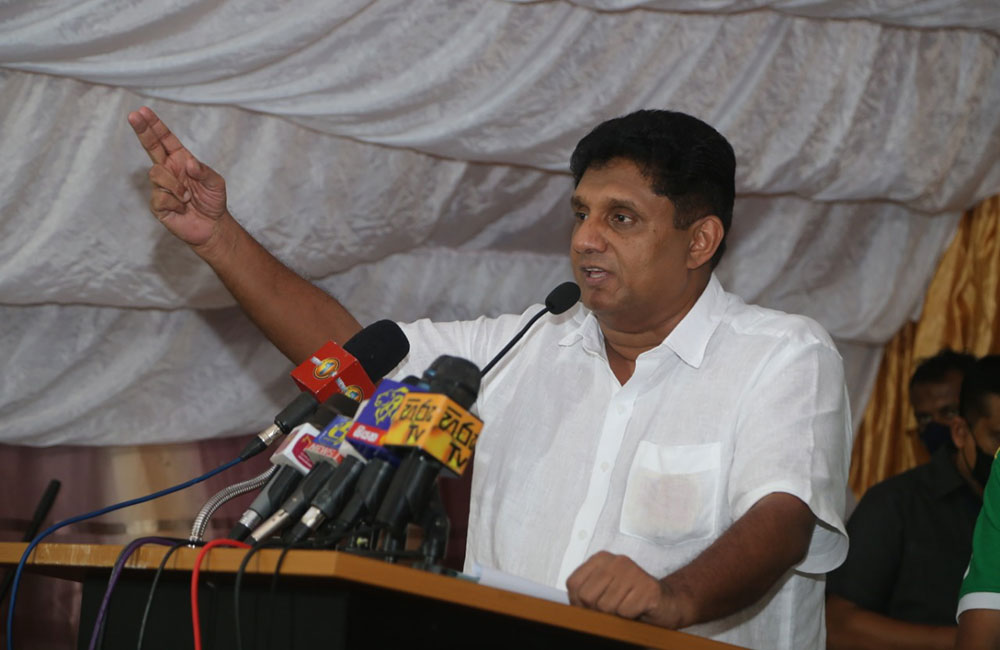
Estate sector workers will become tea estate holders under SJB: Sajith
He added that this transformation is required to improve the living conditions of the estate sector workers.
Premadasa was speaking at an election meeting in Hatton.
He reminded that it was his father late R Premadasa who granted citizenship to more than 1.2 million estate workers.
“That endeavour will be complete when each and every estate family gets the ownership of a land and a house,” he added. He said that he would establish a Development Task Force under the purview of the Prime Minister to alleviate poverty among the plantation community.
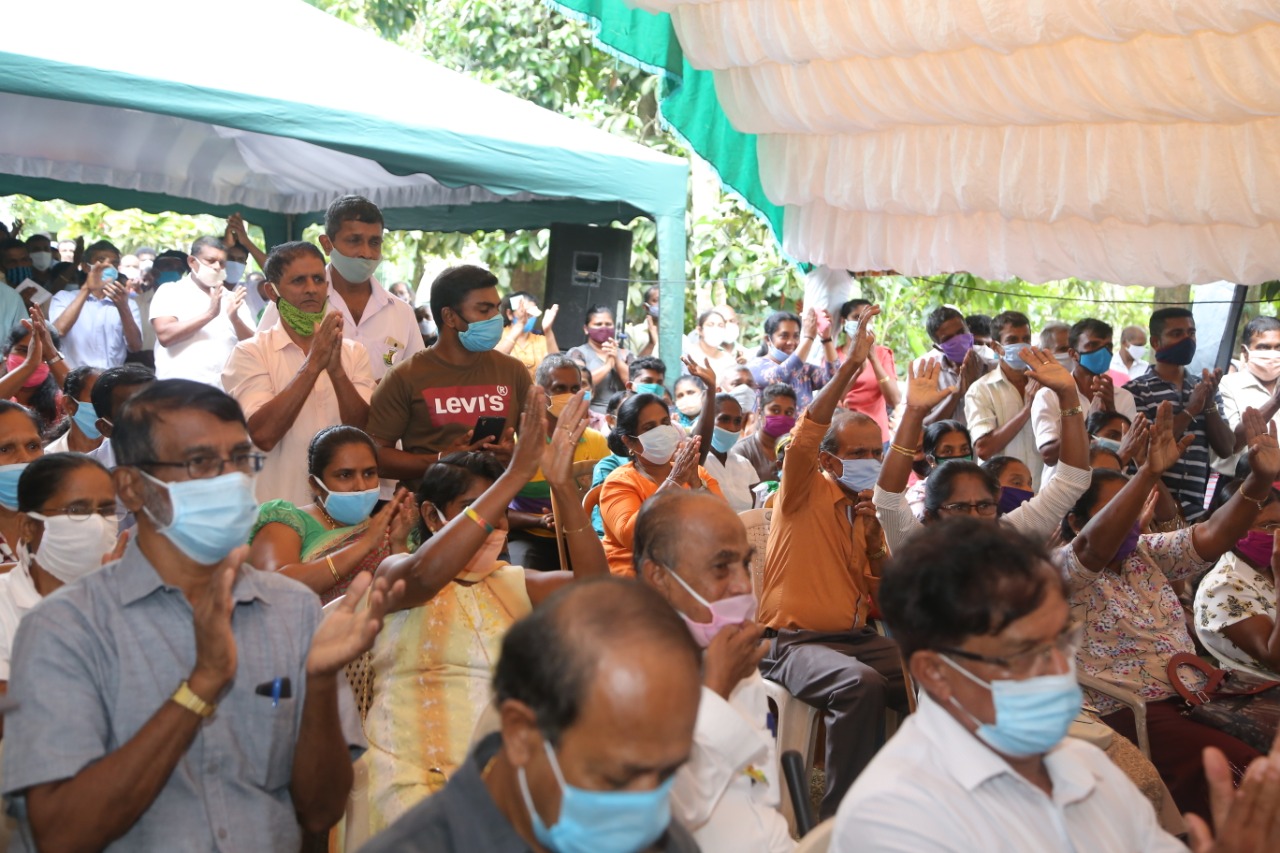
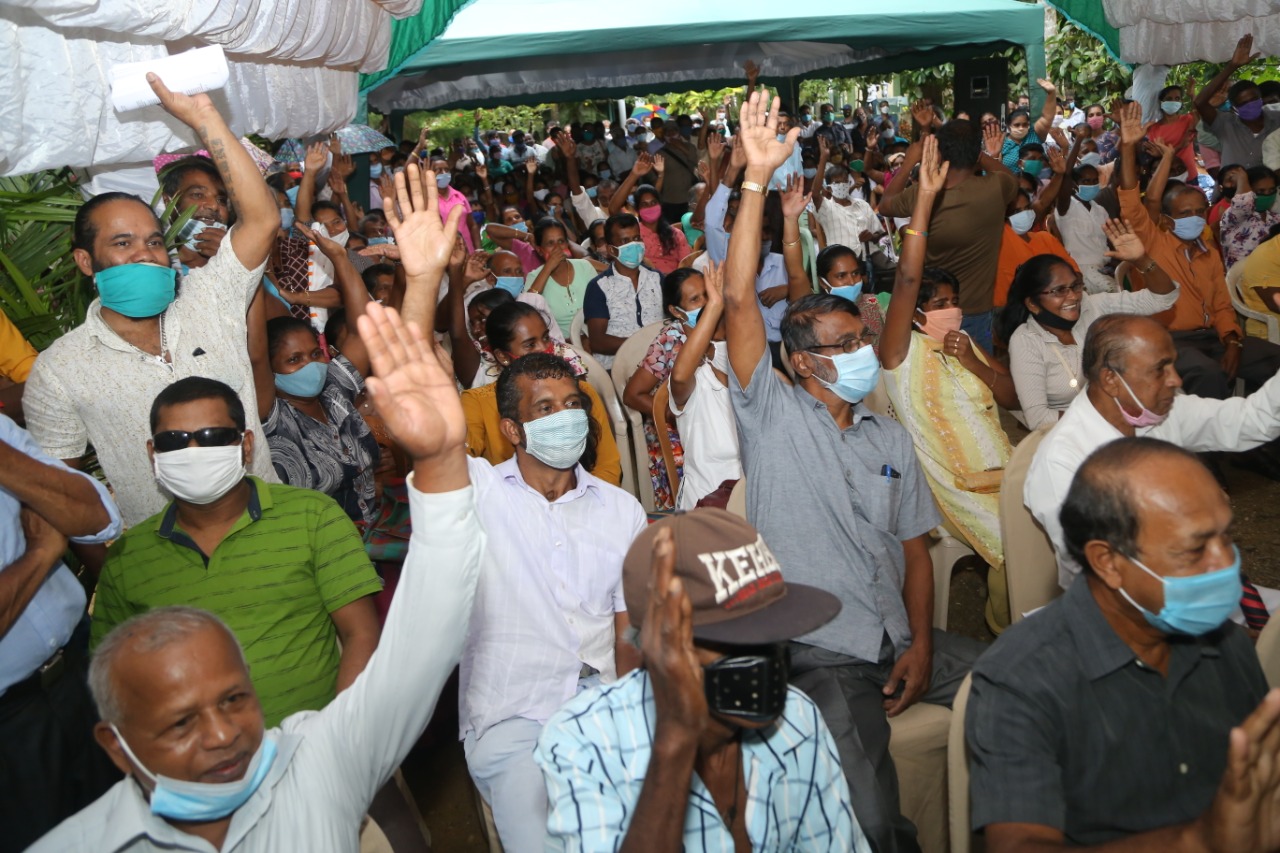
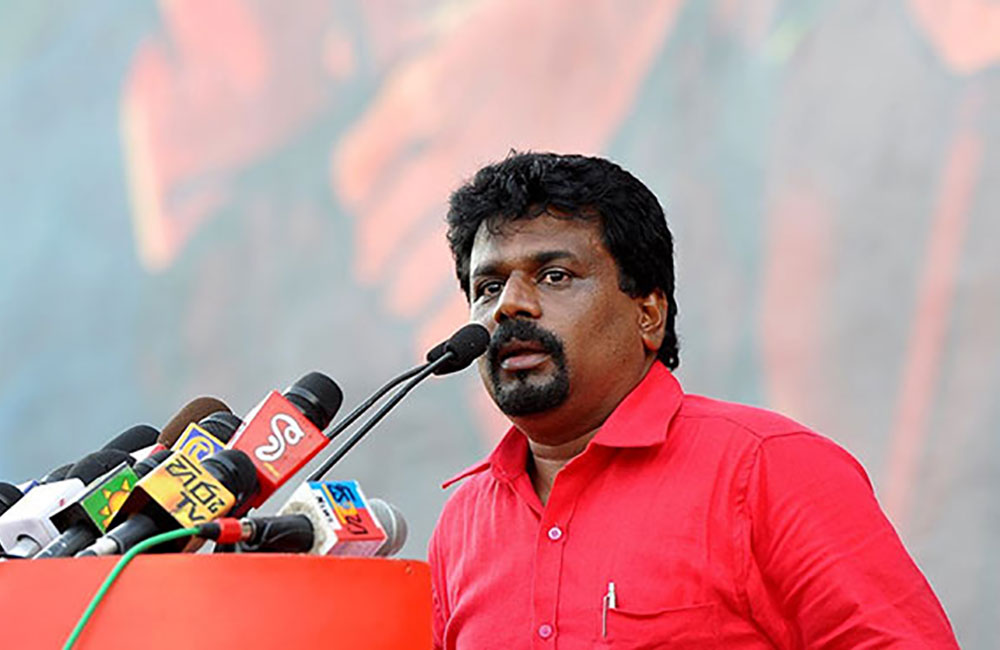
Govt. values elections more than human lives: AKD
"We must understand that human lives are more valuable than elections. According to the prevailing situation the lives of the public and election officials should not be put at risk due to the election campaign,” Dissanayake said.
Dissanayake said this while addressing a rally held in Yosorapura, Additiya on Friday.
The JVP Leader also said that Sri Lanka has become a playground for countries like India, China and America. “The national resources of our country have been already sold to these countries. There were 14 islands in our country and two of them have been already sold to foreign companies,” he said.
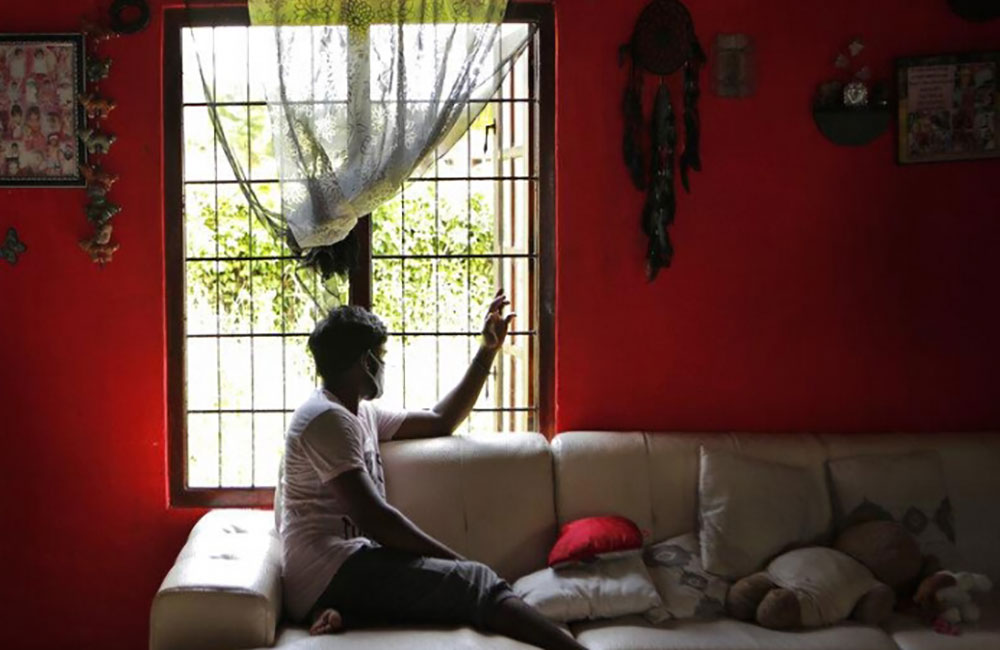
Patient 206, who is blamed for nearly half of Sri Lankan coronavirus cases, speaks out
Under President Gotabaya Rajapaksa, a former army lieutenant colonel credited with helping end Sri Lanka's long civil war in 2009 with a brutal military campaign against separatists, the Indian Ocean island nation has used the armed forces to combat the virus.
When Rajapaksa was elected president last year, a health unit was created in the intelligence service that sprang into action when COVID-19 first appeared, according to State Intelligence Service Assistant Director Parakrama de Silva.
Intelligence officers, health workers, police officers and military troops have worked together to identify infected people, trace their contacts and send them to military-run quarantine centres.
After Dinesh, 33, tested positive for the virus in April, navy sailors raided his village, forcing his contacts into quarantine. But authorities have blamed a melee that ensued not on the military, but on Dinesh - and said the rumpus ended up leading to at least 1,100 additional virus infections. These cases, they publicly declared, were all linked to a single patient.
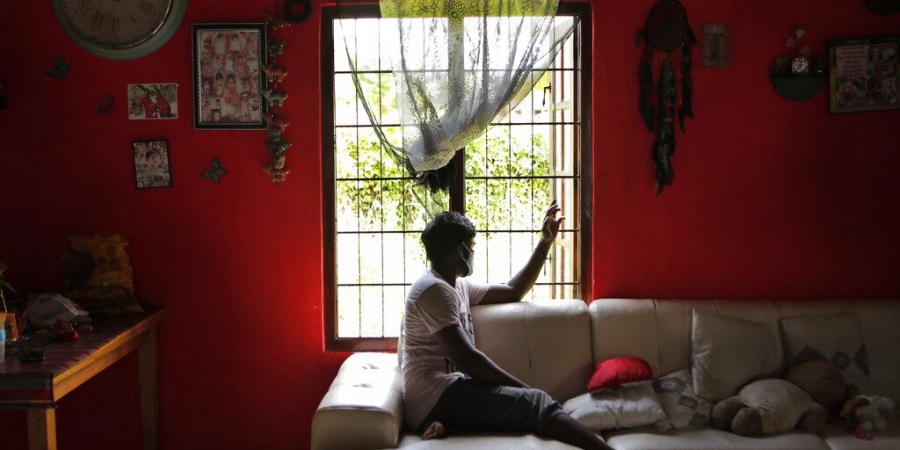
“"I can't accept that I am responsible for infecting so many, including the navy sailors,"” Dinesh told The Associated Press, after he had returned home following his release from a month-long stay at a hospital.
Before the pandemic reached Sri Lanka, resulting in an island-wide lockdown, Dinesh worked as an auto rickshaw driver. But now he's unable to find work. "No one gives a job when they realize that I am Patient 206,"” he said.
Likening him to South Korea's “Patient 31,” whom media in that country labelled a “super spreader” because she was the first person to test positive in a secretive church community where the virus was later found endemic, police spokesman Ajith Rohana said Dinesh had undermined Sri Lanka's fight against COVID-19. "“He is the turning point and has done huge damage to our country,”" Rohana said.
Authorities say that on April 5, Dinesh was caught by village residents for a robbery and handed over to police. At the station, Dinesh had a fever as well as a leg injury sustained during the robbery, so authorities admitted him to a nearby hospital, where he tested positive for the coronavirus and stayed for 31 days.
After he tested positive, the police who made the arrest, Dinesh's friends and more than 100 people in his neighbourhood were ordered to quarantine at home. But not everyone complied. Afraid that the virus would spread quickly in the congested area, Sri Lanka's navy sent in a team of sailors to help health workers. As the sailors approached, some of Dinesh's associates panicked. Of the 28 people seized from the community and quarantined, 16 tested positive.
Two weeks later, some sailors involved in the operation did, too. The first infected sailor, who was on leave in the town of Polonnaruwa, about 225 km northeast of Colombo, was reported April 22, prompting provincial health officials to isolate 12 nearby villages.
The next day, 30 other sailors tested positive. With the virus spreading to different parts of the country where sailors were on leave, authorities ordered troops from all arms of the military to report back to their camps.
Some 4,000 navy sailors were quarantined inside a single camp, while more than 200 relatives were taken to navy-run quarantine centres. At least 15 villages were isolated in different parts of Sri Lanka for about two weeks, and about 1,300 other people underwent self-quarantine.
Ultimately, about 900 navy sailors tested positive, with around 50 other infected people also part of that cluster.
Two other clusters also blamed on Dinesh had at least 150 coronavirus cases, according to authorities. Sri Lanka has confirmed at least 2,665 cases in all, including 11 deaths, meaning nearly half of its caseload has been blamed on one man - Dinesh.
“"What to do? It is our fault for using drugs?" he said, referring to his heroin habit.
Dinesh said he had been using heroin since 2002, but that he never became “a severe addict. During the coronavirus lockdown, however, he used the drug more regularly, and joined three other users in the robbery to raise money to buy more heroin.
Former Sri Lankan President Maithripala Sirisena launched an expansive crackdown on illegal drugs, calling users “a social catastrophe,” and his successor, Rajapaksa, also has taken a tough stance.
Authorities have used the fallout from the raid on Dinesh's village to increase anti-drug crackdowns in slums and urban apartments. Officials say some 300,000 people - around 1.5% of all Sri Lankans - are addicted to drugs.
Dinesh, however, said he was no longer part of that stigmatised population. One positive of being infected with the coronavirus, he said, was that his hospitalisation helped him to kick his heroin habit. (PTI)
Page 272 of 537